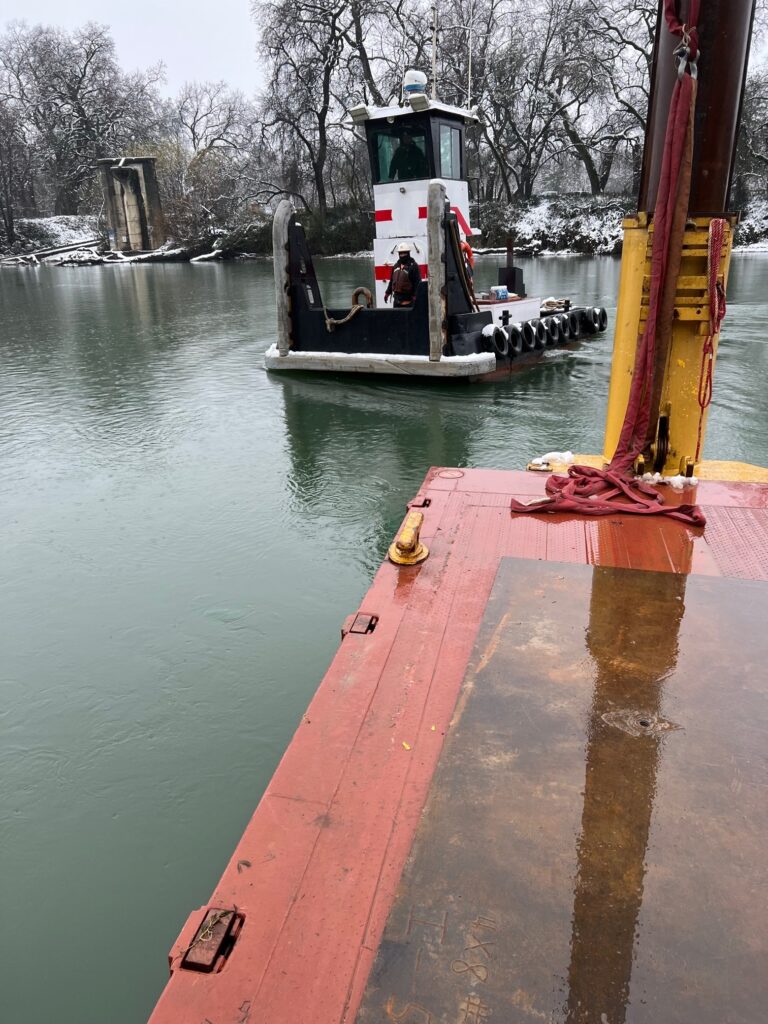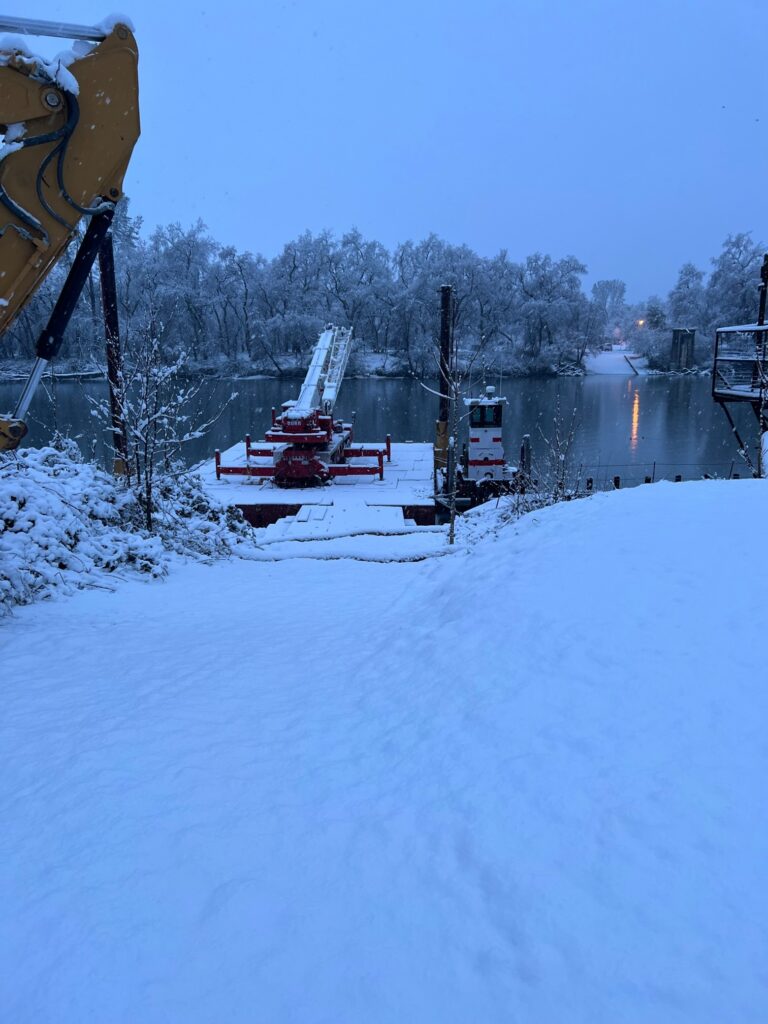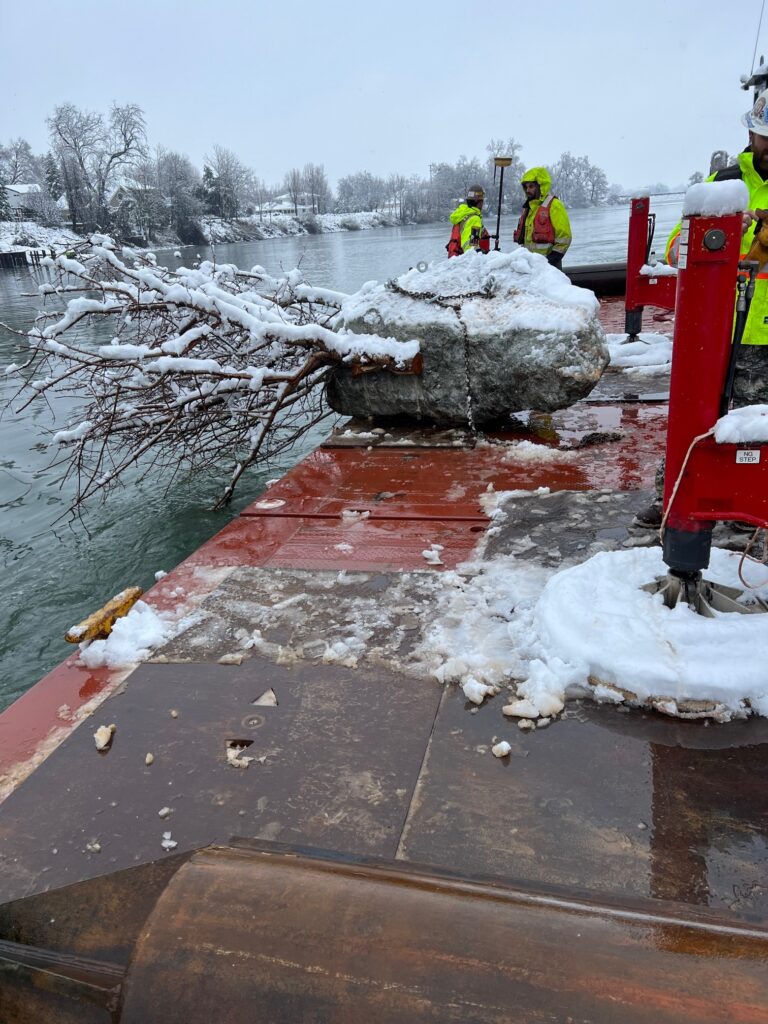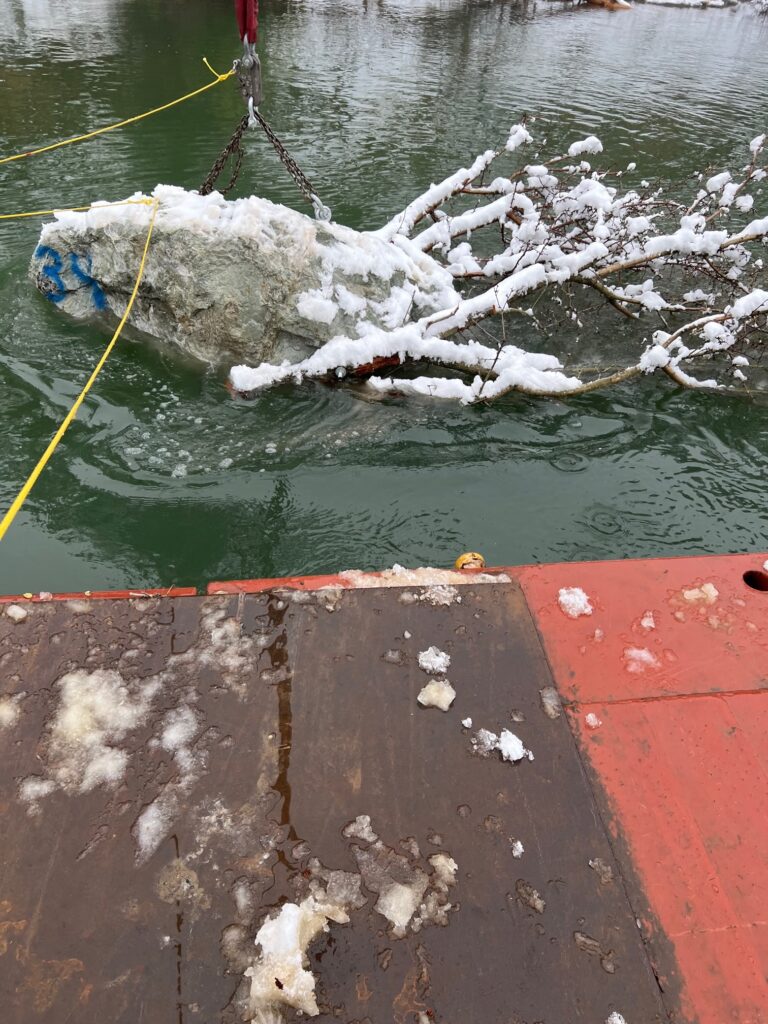Chances of survival for young salmon and trout in the upper Sacramento River may improve thanks to an innovative project Pacific Tugboats completed in Redding. In 2017 a pilot program was tested to place structures—“rockwads”—made of almond trees bolted to large boulders, in places along the river bottom. These rockwads were thought to provide needed shelter for young fry as they transit through. Each one weighed from 4 to 9 tons.
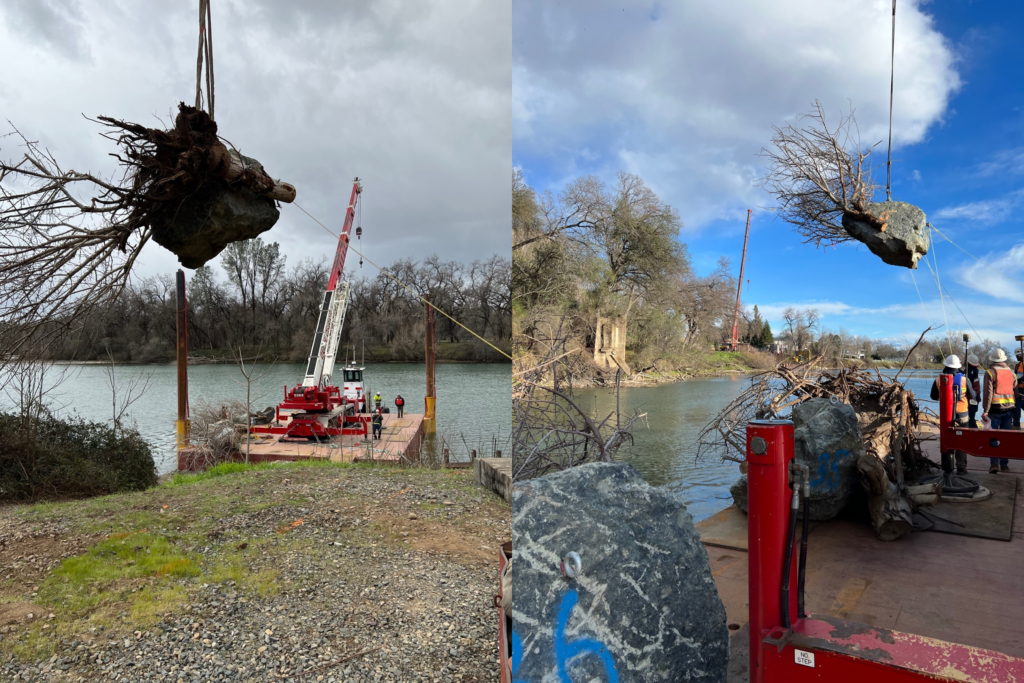
Subsequent video surveys proved the rockwads performed as hoped. In February 2023 Pacific Tugboat Service returned to support further efforts. A non-profit organization, the Sacramento Valley Ecological Restoration Foundation (SAVER), along with Reclamation District 108, and the Sacramento River Settlement Contractors, coordinated the work and received funding from Bureau of Reclamation, US Fish and Wildlife Service.
“The diverse makeup of the rockwads, with boulder and woody debris, create an ideal setting for foraging cover and rest for small juvenile salmon and trout,” said Roger Cornwell, President of SAVER.
Meyers Earthworks of Redding built the rockwads and engaged Pacific Tugboat Service for the water portions of the job. We sent our truckable tug, CADET, to the job and put it to work. Mobilization consisted of craning the tug into the river, then using it to build a 40’ by 60’ Flexi float barge. Spuds were installed to the barge. We built a ramp and carefully drove a crane aboard our barge and so built a maneuverable, shallow draft work platform for the job.
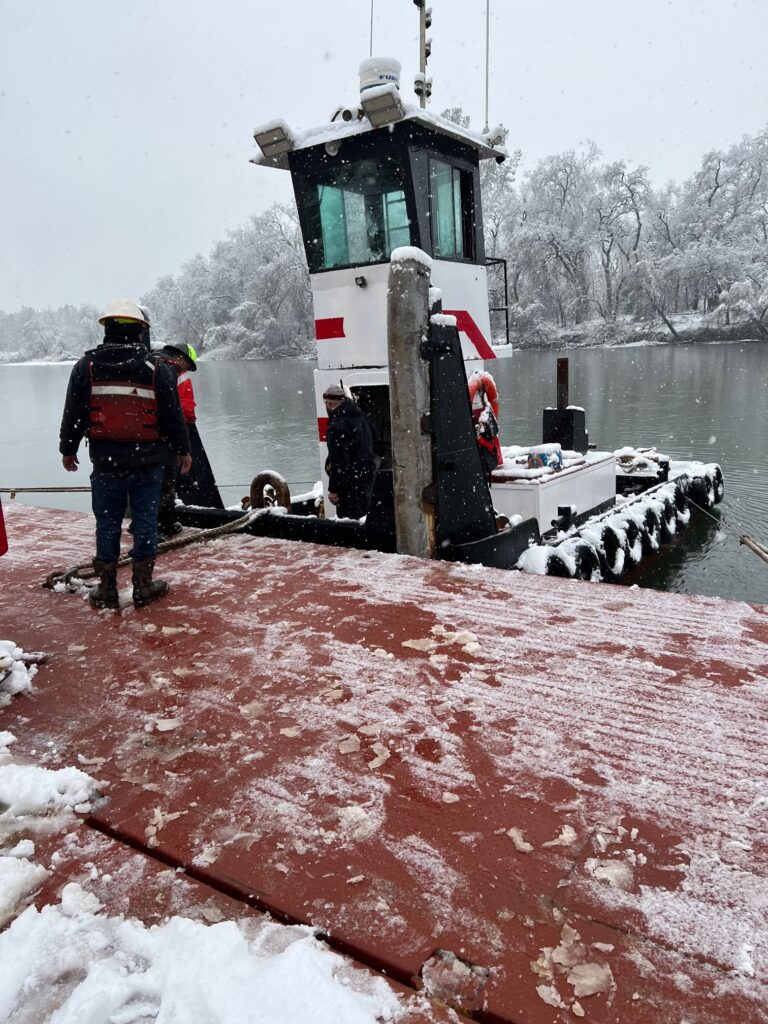
During the week of February 20-25, 2023, Pacific Tugboat Service crew set 20 of the rockwads under the direction of local biologist Jeff Souza. Captain Cale Uecker and deckhand/engineers Scott Wilson and Travis Parra were an example of professionalism on the water. Weather offered them challenges in high winds, rain, sleet and, for the last few days, snow.
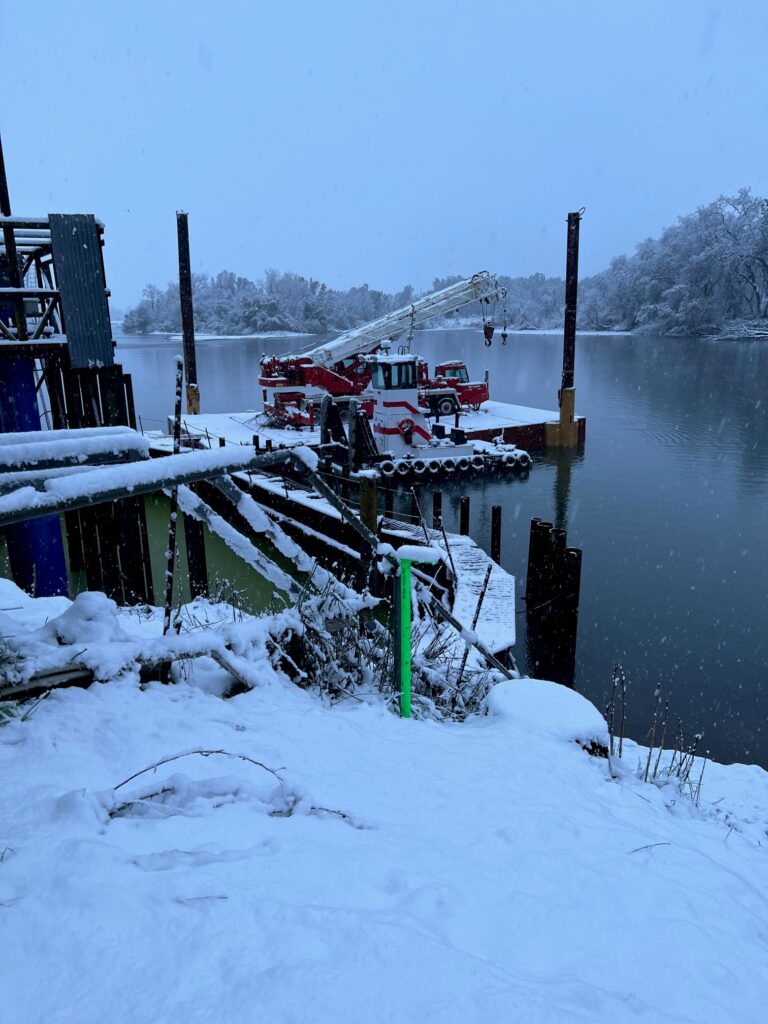
Though the roads around Redding were largely closed February 24 and 25th, we completed the job, nonetheless. Demobilization was begun immediately after the last rockwad was placed. By midday Saturday, February 25, the water element was completed.
“We hope the addition of more structures,” Jeff Souza of Tehama Solutions stated, “will ultimately mean more salmon fry will grow to a healthier, robust size.”
For now the rockwad structures wait in the riverbed for fry to find them. We wait and hope for expansion of the project to other portions of the river. As proven rockwad setters we are ready to do it again.
Far from any ocean, high above sea-level, deep in the forest and blanketed in snow, Pacific Tugboat Service crews once again demonstrated their diversity of skills, care for their customer and our shared environment and a passion for getting the job done well.

